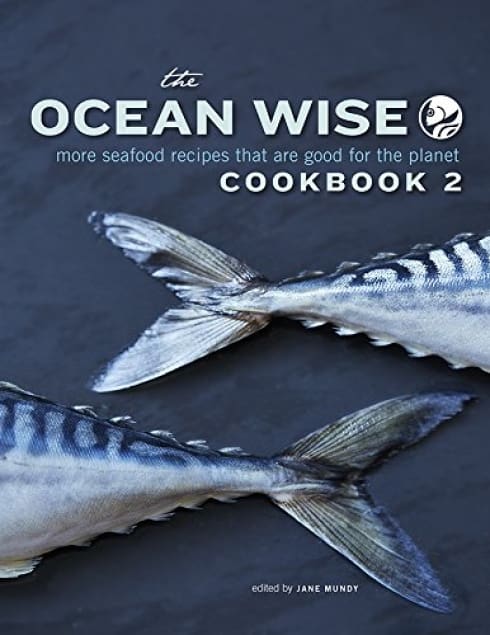 More than one billion people worldwide depend on seafood as their primary food source; that’s a known fact. Common knowledge, too, is that our taste for large predatory fish like tuna and halibut are destroying the ocean’s ecological balance, and that a switch to more progressively managed seafood choices (including our favourites: black cod, sablefish, spot prawns and anchovies, the latter without which we will not eat pizza) isn’t just a neat idea; it’s what’s happening. That’s why the Oceanwise Program is such a boon to conscious foodies; it helps us navigate the murky waters of responsible fish consumption, ensuring our salmon burgers are as sustainable as they are succulent. We catch up with Jane Mundy, editor of the Oceanwise Cookbook 2 (loaded with amazing recipes for meals like tempura lobster with banana-macadamia salad, and Indian Point scallops with green fairy pesto and parsnip puree) to talk about the project, plus, we’re giving you a chance to enter to win the Oceanwise Cookbook 2! —Adrienne Matei
More than one billion people worldwide depend on seafood as their primary food source; that’s a known fact. Common knowledge, too, is that our taste for large predatory fish like tuna and halibut are destroying the ocean’s ecological balance, and that a switch to more progressively managed seafood choices (including our favourites: black cod, sablefish, spot prawns and anchovies, the latter without which we will not eat pizza) isn’t just a neat idea; it’s what’s happening. That’s why the Oceanwise Program is such a boon to conscious foodies; it helps us navigate the murky waters of responsible fish consumption, ensuring our salmon burgers are as sustainable as they are succulent. We catch up with Jane Mundy, editor of the Oceanwise Cookbook 2 (loaded with amazing recipes for meals like tempura lobster with banana-macadamia salad, and Indian Point scallops with green fairy pesto and parsnip puree) to talk about the project, plus, we’re giving you a chance to enter to win the Oceanwise Cookbook 2! —Adrienne Matei
Read our Q&A with Jane Mundy here, the enter to win by filling out our form below.
We increasingly see the Oceanwise label on menus, but for someone entirely unfamiliar with the project, what’s the quick and dirty?
The Ocean Wise program created a system that would make it easy for everyone to choose an ocean-friendly, sustainable seafood in a restaurant or at your local fishmonger. The Ocean Wise label means that item is caught and/or grown in sustainable practices.
What drew you to take on the Oceanwise Cookbook Project? Fill us in a bit about your background, and how you developed an interest in sustainable seafood.
About eight years ago I was invited to a restaurant that was showcasing its new Ocean Wise menu (Ocean Wise started in 2005). I had the opportunity to meet Mike McDermind, a biologist and then Ocean Wise manager. We got talking—I studied marine biology for a short time and we are both passionate about sustainable food—and I suggested a cookbook.
I also learned about the state of our oceans and realized that I was part of the problem. Back in the 1990s I had a large film catering company called Reel Appetites and we served countless farmed salmon to celebs and crew for 15 years. Back then most of us were unaware of sustainability issues and no one asked where their food came from.
Did you discover any surprises in the compilation of this book? Flavour combos you wouldn’t have guessed were great, or a new type of seafood you hadn’t tried?
I made some recipes for the first time and use them over and over again. Black olive powder is an ingredient for ling cod but I triple the recipe and sprinkle it over pizza and pasta. Tangerine powder is like fairy dust: used in scallops but also great with desserts. Did you know that wine corks tenderize octopus? It works but don’t ask why. And wooden clothes pegs are great for holding together taco shells before serving.
And I learned about smoking fish for this second Ocean Wise book. My all-time fave is now smoked sturgeon with orange and fennel.
What is the best piece of general advice you have for cooking seafood at home?
Just before you think your seafood (or any fish) is cooked, it is cooked.

Be the first to comment